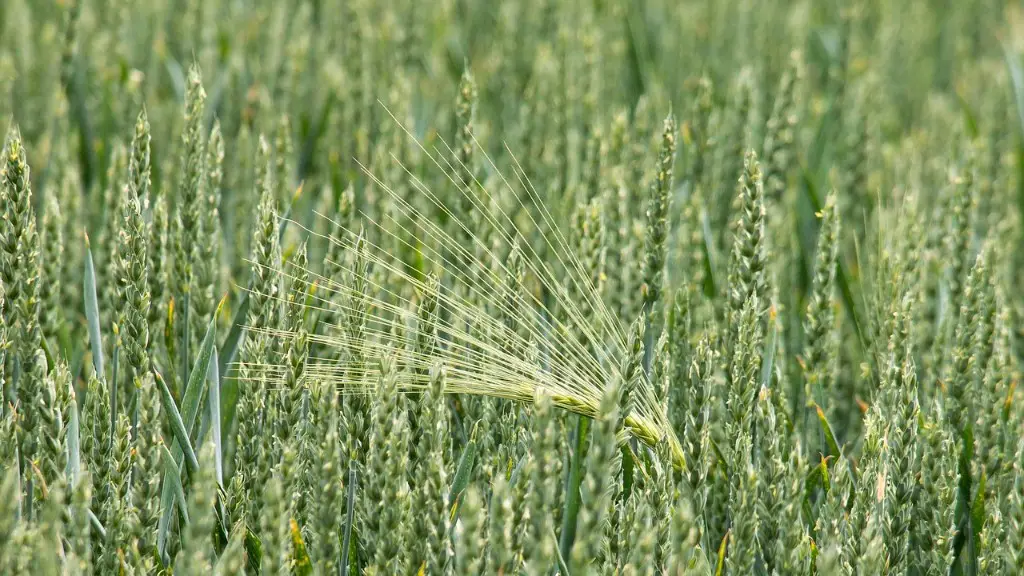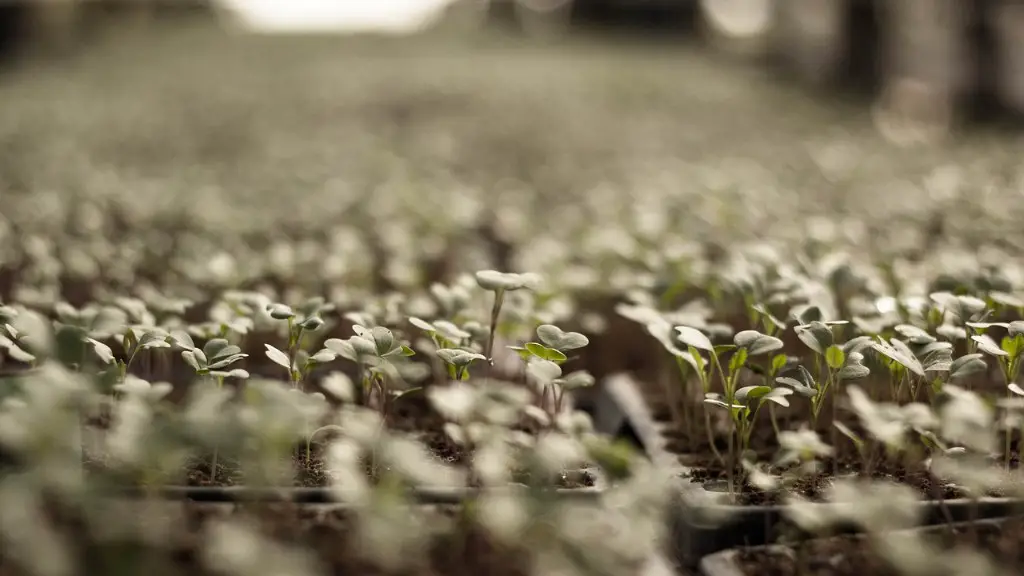Agriculture is one of the most ancient ways of life. It involves cultivating crops, raising livestock, and undertaking other farming activities in order to make a living. There are many areas to study in agriculture, and these can depend on the sector chosen. For those interested in agricultural sciences, there are fundamental and applied sciences to consider. Animal husbandry, agribusiness, agroecology and precision farming are just a few of the other topics to consider. Here we look at some of the areas to study, and the skills and knowledge needed to be successful in this discipline.
Plant and crop sciences are central to the study of agriculture, allowing students to gain an in-depth knowledge of the different types of plants, their growth cycles, and pollination needs. An understanding of horticulture is also important, enabling agriculturalists to identify various diseases and conditions of plants, as well as their design and pruning needs. Students must also be able to interpret data, devise strategies, and develop solutions for various agricultural issues. A science-based curriculum with classes in genetics, ecology, agriculture, and agricultural sciences is strongly recommended for those considering a career in this industry.
Soil sciences are essential to the study of agriculture, as they enable students to understand soil types, structure, and composition. The application of nutrient management and the development of sustainable soil practices is essential to the success of the agricultural industry. Related courses in the area of crop nutrition and soil fertility are also important. A chemistry-focused curriculum or classes in plant nutrition and sustainable farming would be beneficial.
A career in agricultural sciences involves an understanding of animal sciences. This includes the study of animal lifecycles and behaviors, nutrition, health, and genetics. Animal husbandry and farm management skills are essential to developing strategies for optimizing production. Knowledge of current animal health policies and regulations is also necessary, as well as the ability to interpret data and devise solutions for various problems that may arise.
Agribusiness courses focus on the business aspects of agriculture, enabling students to focus on marketing and promotion, financial management, and business planning. Understanding the economic and economic-demographic dynamics of the agricultural sector is essential. Courses in agribusiness law, crop insurance, commodities markets, agri-finance, and international trade are beneficial for those looking to enter the world of agricultural business.
Agroecology studies examine the interactions between biotic and abiotic components in agricultural systems. This includes the ecological and socio-economic impacts of production and its sustainability. Courses in this area may include topics such as soil management, crop protection, aquaculture, and climate change. Courses in agroecology, soil science, and crop science can help to provide a comprehensive foundation in this field.
Precision farming involves advanced technology and data-driven practices to optimize crop management and optimize yields. It is an important topic to consider in agriculture, as it enables students to understand how to maximize yield through the manipulation of inputs such as water, crop protection, and fertilizers. Topics to consider in this area include soil sensing, data analysis and interpretation, precision agriculture systems, and decision support systems.
Crop Physiology
Crop physiology is an important aspect of agricultural studies, as it encompasses the scientific principles governing various aspects of plant growth and development. Crop physiology focuses on the environmental and genetic factors that influence plant growth, including light, temperature, nutrient availability, and water supply. Other aspects to consider include photoperiodism, photomorphogenesis, photosynthesis, and respiration. Courses in this field are typically focused on botany and genetics, as well as physiology and growth and development. Students must develop a sound understanding of the physiology of plants, in order to be able to devise solutions to maximize productivity.
Entomology
Entomology encompasses the study of insects, including their behavior, reproduction, and ecology. It is an important field of study, as insects play an important role in the life cycle of various plants, animals, and their habitats. An understanding of entomology is essential to the development of integrated pest management plans. Classes in this area typically include topics in taxonomy, ecology, and insect biology. Courses in entomology are beneficial in developing an understanding of insect behavior and the effects of various agricultural practices.
Plant Genetics
An understanding of plant genetics or molecular biology is essential in agricultural studies, as genetics is one of the most important tools in the development of crop varieties and the manipulation of plants. Courses in this field include topics such as genomics, plant breeding, and gene expression. The ability to interpret and analyze genetic data, as well as devise solutions to various issues, is essential.
Soil Chemistry
Soil chemistry focuses on the physical and chemical processes in soil, and it allows students to develop an understanding of the structure and properties of soil. An understanding of soil chemistry is essential in optimizing crop management, nutrient release, and soil fertility. A chemistry-focused curriculum including classes in soil nutrition, soil management, and soil health is recommended for those focusing on this field.
Farm Animal Management
Farm animal management involves the science and practice of properly managing farm animals for various purposes, such as meat and milk production, plant breeding, and animal welfare. Students in this field learn about the nutrition and health of animals, as well as their breeding and genetics. Courses in this field typically cover topics such as animal welfare, animal health management, anatomy, and psychology. Students must also understand how to safely and effectively manage animals, and how to interpret data and make sound decisions.
Horticulture
Horticulture is the science and art of cultivating and caring for plants. It involves the propagation, planting, and management of ornamental, culinary, and medicinal plants. Classes in this field typically focus on the principles of plant physiology, physiology and growth, plant selection, soil management, and plant maintenance. An understanding of horticulture is important in developing an appreciation of the interaction between plants and their environment.



